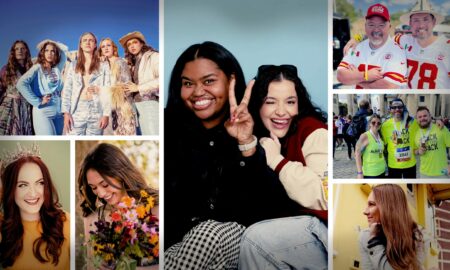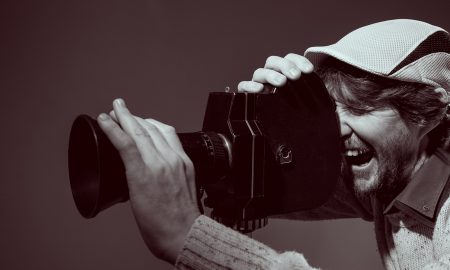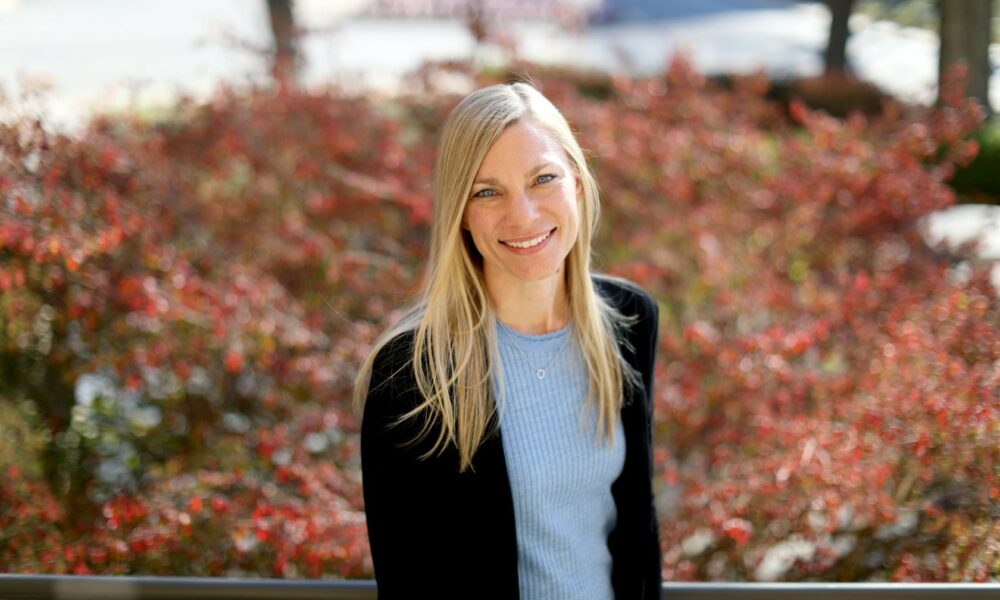

Today we’d like to introduce you to Debra Olson-Morrison.
Thank you so much for sharing your story and insight with our readers. To kick things off, how did you get started?
For this narrative, I will focus on why I was nominated for this interview. If I were to start with myself in place, I would identify as a white cisgender woman who is a college professor and social worker. I am one of four powerful women in my family. My mother, who struggled to complete high school, has enough common sense and life smarts to have completed three PhD’s by now. My mom also worked very hard at a minimum-wage job to provide for us when we were growing up. My older sister left home at 18, and through sheer will, persistence, and grit, started at community college and ended up years later with a master’s degree to become the nurse practitioner she always wanted to be. My grandmother, who is also a nurse, inspired her path. My feisty, indomitable younger sister also went out independently at 18, worked multiple jobs to make ends meet, and completed her cosmetology training at 19. Since my older sister and I were young, my younger sister helped us feel pretty by using her talent as a hair stylist, and since that time, she has been one of the most skilled people I know in helping people feel beautiful about themselves. And then there is me- in the middle – quiet, shy, a peacemaker. I left at 18, too. I went to college to earn a music therapy degree, something I knew I wanted to do since middle school.
After receiving my degree, I moved to Salt Lake City to complete an internship in music therapy working at an acute psychiatric hospital. A few years into working as a music therapist, I met someone who told me I would be a great social worker. I never imagined myself as such, but following her advice, I went back to school to earn my master’s degree in social work in 2001, and 8 years later, I completed my PhD.
I talk about my family because I am humbled by the strength of us women, and our ability to work so hard, and persevere through so many challenges to become the people we are today.
Fast forward to the present, I am now in Academia. This is surprising to me because I never pictured myself as a teacher. I worked as a clinical social worker and music therapist much of my younger life. After finishing my Ph.D., my family and I moved to New Zealand for four years. When I returned, I was hired at Park University to teach in their MSW Program. I was there for five years. During those five years, I discovered a passion for educating future social workers.
I also realized the social worker part of me could do much to enhance the academic system to advocate for students who needed extra support to finish college. The cool thing about social work education and being a social worker at the same time is that I could teach students about social work, and then support them doing social work at their campus. I helped the students at Park to work within the university system to develop services for other students. The students worked with the Dean of Students and created the food pantry at Park. They also worked to streamline access to support services and advocated for the student body in many ways. A student nominated me for faculty advisor of the year through our social work honors society. I won this award in 2019, the same year our students won the National Student Organization Service award through this same organization. A student and I accepted the awards in Denver, and I will never forget how honored I felt to know students valued my efforts to help them grow into influential people who could make change, and make a real difference in other’s lives. Now, I work at Avila University as the BSW Program Director. I feel a great responsibility to see the potential in every student to be a changemaker.
It wasn’t obstacle-free, but would you say the journey has been fairly smooth so far?
Is any road without bumps, twists, turns, and the occasional roadblock? But in reality I have come to realize there is no obstacle to me achieving my goals but my own limiting beliefs. My strong sense of purpose to help others reach their potential (whether students or clients in my private practice, or even other instructors and clinicians when I conduct training and workshops), and knowing that no matter what, I can be stronger than the challenge in front of me has helped me to take on a rather stubborn mindset about creating the life I want. Being stronger means leaning in with compassion, love, and optimism. I have to make choices that reflect who I want to be in the world. That takes courage – a ton of courage. And who could overcome any struggle without accepting help and confiding in people who love you and want the best for you? I am so fortunate to have those people in my life. Honestly, I don’t like to talk too much about the hard things. They helped me grow, be stronger, and act with more conviction. Those tough times pushed me to work diligently on myself, and I am grateful to feel like I can improve on my own and on others’ behalves.
Thanks for sharing that. So, you could tell us a bit more about your work.
I work as a teacher, scholar, and a social worker, and am a licensed clinical social worker and Registered Play Therapist. For many years my clinical practice focused chiefly on children. I worked at a residential treatment center with school-aged children placed there because of severe behavioral and emotional challenges. Most of the children carried histories of severe maltreatment. I ran movement-based music therapy groups with the children. Drumming, dancing, moving, and playing music with them gave us all a sense of lightness, freedom, and joy not found in any other space but that one. There are few things on earth as wonderful as seeing a child who carries the weight of a horrible, horrible history start to open up to fun – and fun with others. I used to go to conferences to discuss what I was doing with the children and titled my session “Reclaiming childhood integrity.” That was the essence of what we were doing in those groups. The focus of my dissertation for my PhD was childhood trauma and attachment. I worked with my research and mentor to publish several articles on trauma and attachment.
In 2012, while living in New Zealand, I started doing training for clinicians working with people with complex trauma. These trainings were quite popular. I traveled all over the country conducting them and also worked with agencies to assist in creating a trauma-informed culture. I developed my own non-profit called New Zealand Trauma Studies Institute, which allowed me to also conduct research. Even after moving back to the United States, I continued to fly to New Zealand a couple times a year to train and work with agencies. Unfortunately, Covid interfered with the momentum of that work.
In 2007, I was asked to teach my first graduate-level class. I taught Research and Grant Writing for Social Workers. Very few social worker majors want to learn research, and I had to work hard to connect with the students around this topic. But somehow teaching research became my thing, and I still teach this class. Because I was asked to teach research, I learned I loved teaching.
As a college professor at Park University, I applied for and was awarded a fellowship to research and teach my colleagues about accessible educational environments (called UDL); I was inspired to apply for this fellowship by one of my students who is disabled. I watched what she went through and decided I wanted to work toward a more equitable educational environment for students like her. I am honored to say I was one of 5 to be part of the inaugural class of Teaching Fellows at Park. The students and I received several student organization awards for our work on and off campus serving others. The highlight is the advisor and service awards I already discussed. I was also recognized with a faculty excellence award (in one of the pictures I uploaded). It was embarrassing but fun to have that sort of recognition for my contributions.
In 2019, my colleague and I received a grant to develop a curriculum to support resiliency in new college students, a topic that has been the focus of my research and service since then. I am working with Avila’s Vice President of Student Success to integrate this curriculum into the Freshman Seminar. We are in our second year of implementation and have had good results so far.
I am passionate about resilience in college students because of current research around student needs. Up to 2/3 of all college students are either housing or food insecure. That same number of students suffer mental health issues. With these challenges, colleges need to do whatever they can to support students in obtaining their degrees. It is horrible that students can be accepted to college with scholarships but then drop out due to these challenges without a degree and with a ton of student debt. We know education is the most effective factor that lifts people of poverty. My curriculum teaches students skills to be resilient through hard times and situations. The curriculum teaches students how to develop skills to be more resilient, such as accessing outside community and social support, become more emotionally intelligent, and develop an internal state of self-efficacy.
What sets me apart from others is my absolute commitment to supporting and advocating for others where I can. I have acquired a position where I can use my life to help students in reach their potential. I take pride that I can see in each one of them more than they sometimes see in themselves. Social workers have one of the most challenging jobs – working day in and day out with impossible systems that don’t provide adequate support for our society’s most vulnerable, marginalized, and oppressed people. Social workers truly are superheroes and don’t get enough credit for all they do to help people lift themselves out of their current life circumstances and, at the same time, be staunch advocates for social justice. That is why social work is not what you do; it is who you are. The students in my classes must understand their worth, power, and purpose. Then, they can use their lives to improve the lives of others, and help create a better world for all of us.
Please talk to us about happiness and what makes you happy.
My children bring me profound joy. I cannot believe I was so lucky to have such beautiful humans as my children. They amaze me, and try to be the best mother I can be. The other things that make me happy are learning, gardening, exercising, meditating, and being with loved ones. Recently, I have discovered that being loved and accepting love are two different things. Letting love in was very challenging for me, and I am so grateful for those who support me in working on this. I indeed derive so much happiness from the wonder of love.
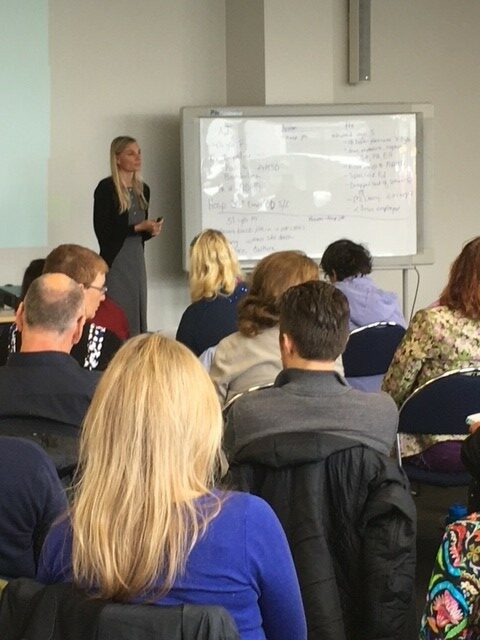
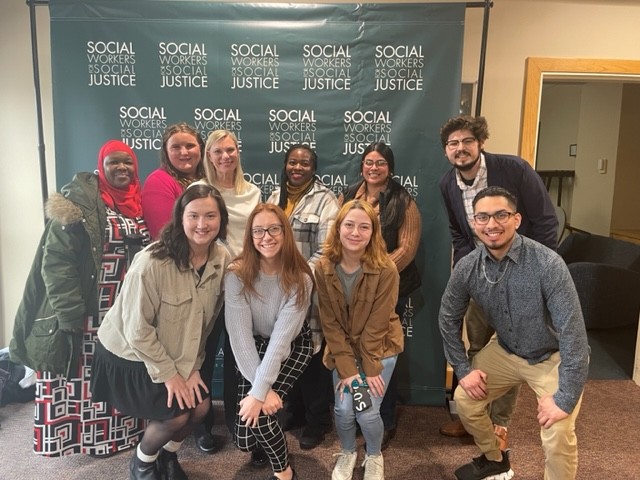
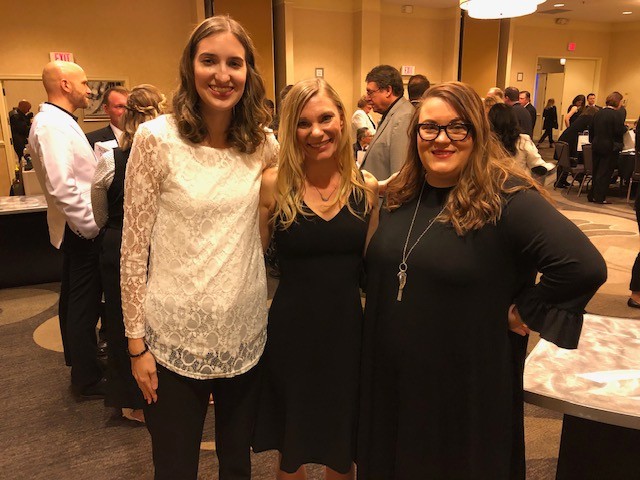
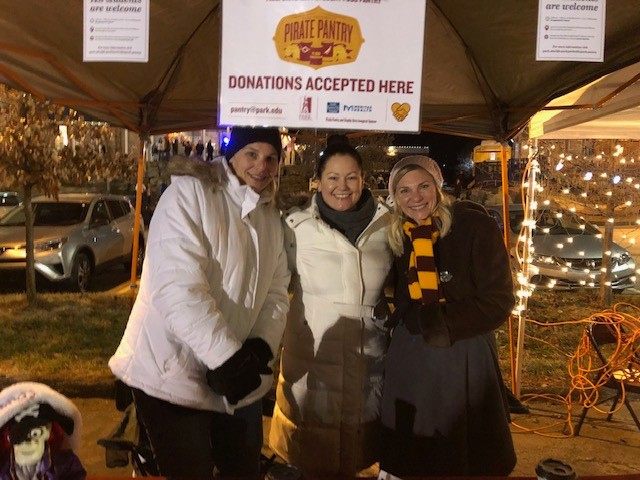
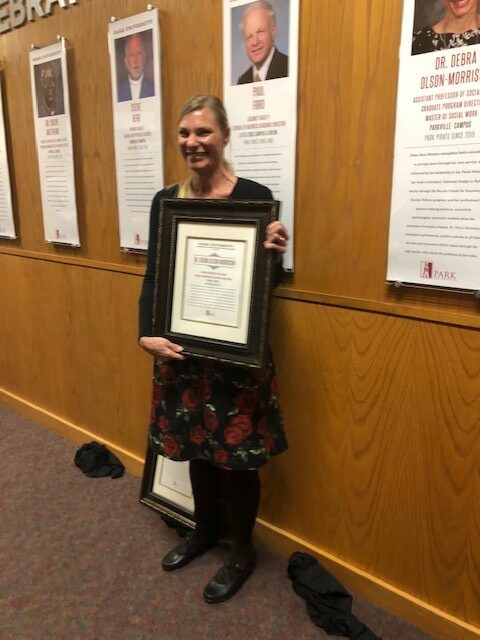
Image Credits
At an awards banquet with MSW students Jessie Looney and Karlie Collins. Collecting donations with MSW students Sarah Parrish and Natasha Swayze With Avila BSW students at advocacy day (names provided by request)

